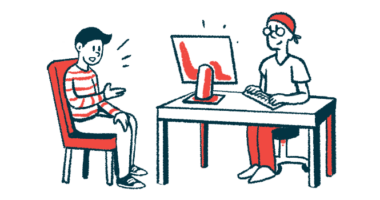First US-based Anavex 2-73 Trial Completed; Top-line Results Due by Year’s End

A Phase 2 clinical trial evaluating the safety and efficacy of Anavex Life Sciences‘ investigational therapy Anavex 2-73 (blarcamesine) in Rett syndrome has been completed, according to the company.
Top-line results from the trial are expected before the end of the year.
“We would like to thank the investigators and clinical site coordinators as well as all the participating families for their dedication to this first US-based clinical study completed with Anavex 2-73,” Christopher U. Missling, PhD, president and CEO of Anavex, said in a press release.
Anavex 2-73 is an oral small molecule designed to activate the protein sigma-1 receptor (S1R), which is involved in proper protein folding. By reducing the toxic accumulation of misfolded proteins in nerve cells, Anavex 2-73 is believed to reduce inflammation and cellular stressors in the brain.
In mouse models of Rett syndrome, the investigational therapy improved motor function, vision, and responses to sound. As a potential Rett treatment, Anavex 2-73 has been granted fast track, orphan drug, and rare pediatric disease designations by the U.S. Food and Drug Administration. Fast track designation is intended to accelerate the development and review of experimental therapies to potentially get them to patients more quickly.
The ANAVEX2-73-RS-001 (NCT03758924) trial was one of three ongoing clinical studies. This double-blind Phase 2 trial enrolled 31 participants at eight sites across the U.S. The trial was open to women with Rett syndrome, ages 18 to 45.
The participants were given Anavex 2-73 or a placebo every day for seven weeks; all 31 completed the study. Owing to the COVID-19 pandemic, follow-up assessments could be done via at-home visits.
After completing the trial, eligible participants had the option to join a 12-week-long open-label extension study.
The study’s main goals were to evaluate the treatment’s safety — as assessed by reported adverse events — and to assess how the medicine is processed within the body.
Efficacy also was analyzed using two measurements, specifically the caregiver-reported Rett Syndrome Behaviour Questionnaire (RSBQ) and the Clinical Global Impressions Scale.
Early data from six participants showed that treatment with Anavex 2-73 led to improvements in both assessments. Significant benefits also were seen in RSBQ Hand Behaviors and Breathing Abnormalities scores.
The preliminary data also indicated that both caregiver- and clinician-reported measures of severity correlated with levels of glutamate, a marker of disease development that activates nerve cells.
Anavex 2-73 also is being investigated in two studies in Australia.
The Phase 2 AVATAR study (NCT03941444) has a similar design to the U.S. trial, aiming to recruit about 30 women with Rett. More information and locations can be found here.
Meanwhile, the EXCELLENCE Phase 2/3 trial (NCT04304482) is evaluating Anavex 2-73 in girls with Rett syndrome, ages 5 to 18. More details on that trial, which has an estimated enrollment of 69 participants, are available here.
“We continue our fast-paced development programs of Anavex 2-73 (blarcamesine) in Rett syndrome,” Missling added.






